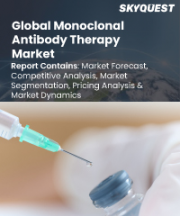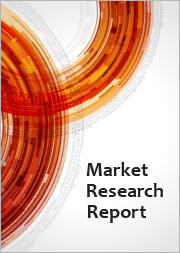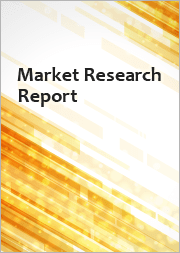
|
시장보고서
상품코드
1439198
항CD20 단클론항체(mAbs) 시장 평가 : 제품 유형별, 적응증별, 최종사용자별, 지역별, 기회 및 예측(2017-2031년)Global Anti-CD20 Monoclonal Antibodies (mAbs) Market Assessment, By Product Type, By Indication, By End-user, By Region, Opportunities and Forecast, 2017-2031F |
||||||
세계 항CD20 단클론항체(mAbs) 시장 규모는 예측 기간 동안 9.84%의 CAGR로 성장하여 2023년 101억 2,000만 달러에서 2031년 214억 4,000만 달러로 성장할 것으로 예상됩니다.
이 시장은 최근 몇 년 동안 괄목할 만한 성장세를 보였으며, 향후에도 강력한 성장세를 유지할 것으로 예상됩니다. 세계 항CD20 단클론항체(mAbs) 시장의 성장은 자가면역질환의 유병률 증가, 기술 발전, 의료 연구 투자 증가, 정부 정책 및 상환 정책 등 다양한 요인에 의해 주도되고 있습니다.
정부 이니셔티브, 유리한 상환 정책, 자가면역질환의 적절한 관리에 있어 항CD20 mAbs의 잠재적 이점에 대한 인식이 높아짐에 따라 항CD20 mAbs의 사용이 촉진되고 있습니다. 또한, 기업들은 양질의 의료 서비스를 제공하기 위해 혁신, 신제품, 보다 효율적이고 효과적인 항CD20 mAbs 개발을 위한 R&D에 투자하고 있습니다. 또한, 공동연구, M&A 및 규제 정책의 확대는 이 시장의 성장을 더욱 촉진하고 있습니다.
세계적으로 자가면역질환의 유병률 증가는 세계 항 CD20 mAbs 시장의 주요 촉진요인입니다. 류마티스 관절염, 전신성 홍반성 루푸스(루푸스), 염증성 장질환(IBD), 다발성 경화증은 가장 흔한 자가면역질환으로, Global Autoimmune Institute는 2022년에는 전 세계 인구의 4%가 적어도 한 가지 이상의 자가면역질환을 앓고 있을 것으로 예상하고 있다고 밝혔습니다. 리툭시맙과 같은 항CD20 mAbs는 자가면역질환 치료에 큰 잠재력을 보여주고 있으며, 이에 따라 의료진과 환자들 사이에서 수요가 증가하고 있습니다.
용도별로는 면역 분야가 가장 큰 비중을 차지하고 있습니다. 이들 항체는 류마티스 관절염, 다발성 경화증, 전신성 홍반성 루푸스 등 다양한 면역질환을 성공적으로 치료하고 있습니다. 또한, 최종사용자별로는 병원이 가장 큰 비중을 차지하고 있습니다. 자가면역질환의 유병률 증가와 고급 치료제의 등장으로 병원 내 mAb 치료 수요를 촉진하고 있습니다. 지역별로는 북미가 가장 높은 점유율을 차지하고 있습니다. 이 지역의 탄탄한 의료 인프라, 국민에게 더 나은 의료 서비스를 제공하기 위한 높은 의료 예산과 투자, 혁신적이고 효율적인 의약품을 개발하기 위한 연구개발 등의 요인으로 인해 북미 시장의 성장세가 두드러지고 있습니다.
세계 항CD20 단클론항체(mAbs) 시장을 조사했으며, 시장 정의와 개요, 시장 규모 추이 및 예측, 각종 부문별·지역별 상세 분석, 산업 구조, 시장 성장에 영향을 미치는 요인 분석, 사례 연구, 경쟁 구도, 주요 기업 개요 등의 정보를 정리하여 전해드립니다.
목차
제1장 조사 방법
제2장 프로젝트 범위와 정의
제3장 주요 요약
제4장 세계의 항CD20 단클론항체(mAbs) 시장 전망
- 시장 규모와 예측
- 제품 유형별
- 제1세대 CD20 단클론항체
- 제2세대 CD20 단클론항체
- 제3세대 CD20 단클론항체
- 적응증별
- 종양
- 신경내과
- 면역
- 기타
- 최종사용자별
- 병원
- 전문 클리닉
- 기타
- 지역별
- 북미
- 유럽
- 아시아태평양
- 남미
- 중동 및 아프리카
- 기업별 시장 점유율
제5장 세계의 항CD20 단클론항체(mAbs) 시장 전망 : 지역별
- 북미
- 유럽
- 아시아태평양
- 남미
- 중동 및 아프리카
제6장 시장 매핑
- 제품 유형별
- 적응증별
- 최종사용자별
- 지역별
제7장 거시적 환경과 산업 구조
- 수급 분석
- 수출입 분석
- 밸류체인 분석
- PESTEL 분석
- Porter's Five Forces 분석
제8장 시장 역학
- 성장 촉진요인
- 성장 억제요인(과제, 제한)
제9장 규제 프레임워크와 혁신
- 임상시험
- 특허 상황
- 규제 당국 승인
- 혁신/최신 기술
제10장 주요 기업 상황
- 시장 리더 상위 5개사 경쟁 매트릭스
- 시장 리더 상위 5개사 시장 매출 분석
- M&A·합작투자(해당되는 경우)
- SWOT 분석(참여 5개사)
- 특허 분석(해당되는 경우)
제11장 가격 분석
제12장 사례 연구
제13장 주요 기업 전망
- Thermo Fisher Scientific Inc.
- F. Hoffmann-La Roche Ltd.
- Genmab A/S
- Biogen Inc.
- Novartis AG
- AbbVie Inc.
- TG Therapeutics, Inc.
- Gilead Sciences, Inc.
- AstraZeneca Plc.
- AbCellera Biologics Inc.
- Bio-Rad Laboratories, Inc.
제14장 전략적 제안
제15장 당사 소개와 면책사항
ksm 24.03.11Global anti-CD20 monoclonal antibodies (mAbs) market is projected to witness a CAGR of 9.84% during the forecast period 2024-2031, growing from USD 10.12 billion in 2023 to USD 21.44 billion in 2031. The market has experienced significant growth in recent years and is expected to maintain a strong pace of expansion in the coming years. The growth in the global anti-CD20 monoclonal antibodies (mAbs) market is driven by various factors such as the rising prevalence of autoimmune diseases, technological advancements, increasing investments in healthcare research, government initiatives, and reimbursement policies.
Growing private and public sector investments in the market, presence of several established players and strategies such as mergers and acquisitions, collaborations, and product launches are accelerating the global anti-CD20 monoclonal antibodies market growth. The global anti-CD20 mAbs market is further undergoing robust growth due to rise in prevalence of autoimmune diseases at global level. Anti-CD20 mAbs play a crucial role in the management of these autoimmune diseases. Anti-CD20 monoclonal antibodies are one of the most effective antibodies used in treatment of a wide range of diseases including cancer and immune related disorders. Other factors, such as improvements in healthcare facilities and technological advancements in the market, are further accelerating the growth of the global anti-CD20 mAbs market.
Government initiatives, favorable reimbursement policies, and growing awareness regarding the potential benefits of these antibodies in the proper management of auto-immune disease further encourage the use of these antibodies among the population. Due to these factors, several public and private companies invest in innovations, new products, and research and development of more efficient and effective anti-CD20 mAbs developments to provide quality medical treatment. Moreover, growing collaborations, mergers and acquisitions, and regulatory policies will further drive the growth of the global anti-CD20 monoclonal antibodies market.
In May 2023, Genmab A/S specialized in the development of differentiated antibody therapeutics to fight against cancer and other serious diseases announced that it received U.S. Food and Drug Administration (FDA) approval for EPKINLY (epcoritamab-bysp), the first and only T-cell engaging bispecific antibody for the treatment of adult patients with relapsed or refractory diffuse large B-cell lymphoma (DLBCL).
Increasing Prevalence of Autoimmune Diseases
The increasing prevalence of autoimmune diseases globally is a major driving factor for the global anti-CD20 mAbs market. Rheumatoid arthritis, systemic lupus erythematosus (lupus), inflammatory bowel disease (IBD), and multiple sclerosis are some of the most common autoimmune diseases. Both developed and developing countries are affected by immunological disorders. Global Autoimmune Institute stated that in 2022, 4% of the world's population had at least one autoimmune disease. Autoimmune diseases are becoming more prevalent each year. Family history of autoimmune diseases, with at least one autoimmune disease, obesity, excessive tobacco consumption, and early exposure to certain infections are the leading risk factors for the rising prevalence of autoimmune diseases. Anti-CD20 mAbs such as Rituximab have shown tremendous potential in treating autoimmune diseases, due to which demand among the healthcare providers and patients is increasing. Growing awareness regarding the potential benefits of these antibodies in management of several diseases is driving the growth of the global anti-CD20 monoclonal antibodies market.
Technological Advancement in Anti-CD20 Monoclonal Antibodies (mAbs)
Anti-CD20 monoclonal antibodies have the potential to treat several autoimmune diseases and cancers. Due to its phenomenal success, there has been continuous development in the market, such as the development of first-generation CD20 monoclonal antibodies such as rituximab, second-generation CD20 monoclonal antibodies such as ocrelizumab, obinutuzumab, and veltuzumab and third generation CD20 monoclonal antibodies such as ocaratuzumab and PRO131921. In recent years, there has been a surge of innovative technologies aimed at overcoming the limitations of previous drugs, and we are in the process of bringing next-generation CD20 monoclonal antibodies into the market. These technological advancements increase the accuracy and efficiency of these drugs in treating diseases.
For instance, F. Hoffmann-La Roche Ltd. has numerous drugs in pipeline under clinical trials, waiting for FDA approvals, such as Gazyva/Gazyvaro (obinutuzumab), the first glycoengineered, type II, humanized anti-CD20 monoclonal antibody which is designed to selectively target the CD20 protein on B cells and to bind with high affinity to the cell surface in a type II configuration for the treatment of systemic lupus erythematosus (SLE) and lupus nephritis (LN).
Growing Demand for Anti-CD20 Monoclonal Antibodies in Immunology
Amongst the application category, immunology segment holds the maximum share in the global anti-CD20 monoclonal antibodies market. These antibodies have proved to be successful in treatment for various immunological disorders such as rheumatoid arthritis, multiple sclerosis, and systemic lupus erythematosus. Due to it, key market players are performing research and development and increasing investments in developing anti-CD20 monoclonal antibodies specially for managing these immunological disorders.
According to an article published in Journal of Neurology in October 2023, anti-CD20 monoclonal antibodies have huge success in treating multiple sclerosis, an immunological disorder. Anti-CD20 monoclonal antibodies such as rituximab, ofatumumab, ocrelizumab, and rituximab are the drugs that are either under clinical development or have been approved for the treatment of multiple sclerosis. Supportive regulatory systems enable pharmaceutical companies to invest in the research and development of these antibodies to improve their product portfolio, provide quality medical treatment, and accelerate market growth.
Hospitals Hold Dominant Share in the Market
Among the end-user segment, hospitals hold a significant market share in the global anti-CD20 monoclonal antibodies (mAbs) market. The rising prevalence of autoimmune disorders and the availability of advanced treatment methodologies are driving the demand for mAb therapy in hospitals. Anti-CD20 monoclonal antibodies are becoming popular among healthcare providers, therefore driving its adoption in specialty and multi-specialty hospitals. The use of anti-CD20 monoclonal antibodies has become standard practice in managing these conditions, contributing to improved patient outcomes and disease management. The ongoing development and clinical use of anti-CD20 monoclonal antibodies reflect their significant impact on modern healthcare and their potential for further advancements in treating various medical conditions.
North America Holds Largest Share in the Market
North America holds the highest share in the global anti-CD20 monoclonal antibodies market. The robust healthcare infrastructure of the region, along with high healthcare budgets and investments in providing improved healthcare facilities to the population involving innovative drug discoveries and manufacturing, and research and development in developing innovative, efficient drugs such as anti-CD20 monoclonal antibodies has led to the tremendous growth of the market in North America.
Moreover, the growing prevalence of autoimmune diseases in the United States and Canada has been a prominent factor in the region's huge demand for anti-CD20 monoclonal antibodies. According to Global Autoimmune Institute , in 2022, 8% of the United States population had at least one autoimmune disease. An increasing number of patients at a rapid scale is increasing demand for these potential anti-CD20 monoclonal antibodies such as Rituximab, Ofatumumab, and Obinutuzumab.
Future Market Scenario (2024 - 2031F)
Global anti-CD20 monoclonal antibodies market is expected to grow in the future, due to multiple factors. Primarily, the increasing prevalence of autoimmune diseases and cancer worldwide has increased the volume of anti-CD20 monoclonal antibodies in the healthcare industry. Increase in healthcare budgets, government initiatives, reimbursement policies, research and development, and innovative product launch by public and private bodies are further accelerating the growth of global anti-CD20 monoclonal antibodies market. Moreover, collaborative ventures involving biotech and pharmaceutical companies have spurred innovation and growth in the market.
Key Players Landscape and Outlook
In the anti-CD20 monoclonal antibodies market, public and private companies are progressively establishing initiatives, strategic partnerships, and distribution agreements, which are pivotal in driving the global anti-CD20 monoclonal antibodies market's expansion. These alliances empower firms to adapt to each other's strengths, gain access to new markets and technologies, and pool resources for research and development endeavors. Distribution agreements enable companies to broaden their market presence at an international level. These collaborative initiatives promote innovation, expedite product development and improved disease treatment, and contribute to the robust growth of the healthcare industry.
In December 2022, Biogen Inc. announced that it had signed an agreement with Genentech regarding glofitamab, an anti-CD20 monoclonal antibody. The strategic acquisition will enable Biogen Inc. to earn royalties on prospective net sales of glofitamab in the United States, which will not be subjected to any payment obligations under the terms of the agreement. It will help the company to improve its product portfolio for the management of several diseases and improve medical treatment. Moreover, the partnership aims to enhance in-depth knowledge, research and development activities, and launch new products in the market that will expand their global presence.
Table of Contents
1. Research Methodology
2. Project Scope & Definitions
3. Executive Summary
4. Global Anti-CD20 Monoclonal Antibodies (mAbs) Market Outlook, 2017-2031F
- 4.1. Market Size & Forecast
- 4.1.1. By Value
- 4.1.2. By Volume
- 4.2. By Product Type
- 4.2.1. First Generation CD20 Monoclonal Antibodies
- 4.2.2. Second Generation CD20 Monoclonal Antibodies
- 4.2.3. Third Generation CD20 Monoclonal Antibodies
- 4.3. By Indication
- 4.3.1. Oncology
- 4.3.2. Neurology
- 4.3.3. Immunology
- 4.3.4. Others
- 4.4. By End-user
- 4.4.1. Hospitals
- 4.4.2. Specialty Clinics
- 4.4.3. Others
- 4.5. By Region
- 4.5.1. North America
- 4.5.2. Europe
- 4.5.3. Asia-Pacific
- 4.5.4. South America
- 4.5.5. Middle East and Africa
- 4.6. By Company Market Share (%), 2023
5. Global Anti-CD20 Monoclonal Antibodies (mAbs) Market Outlook, By Region, 2017-2031F
- 5.1. North America*
- 5.1.1. Market Size & Forecast
- 5.1.1.1. By Value
- 5.1.1.2. By Volume
- 5.1.2. By Product Type
- 5.1.2.1. First Generation CD20 Monoclonal Antibodies
- 5.1.2.2. Second Generation CD20 Monoclonal Antibodies
- 5.1.2.3. Third Generation CD20 Monoclonal Antibodies
- 5.1.3. By Indication
- 5.1.3.1. Oncology
- 5.1.3.2. Neuroscience
- 5.1.3.3. Immunology
- 5.1.3.4. Others
- 5.1.4. By End-user
- 5.1.4.1. Hospitals
- 5.1.4.2. Specialty Clinics
- 5.1.4.3. Others
- 5.1.5. United States*
- 5.1.5.1. Market Size & Forecast
- 5.1.5.1.1. By Value
- 5.1.5.1.2. By Volume
- 5.1.5.2. By Product Type
- 5.1.5.2.1. First Generation CD20 Monoclonal Antibodies
- 5.1.5.2.2. Second Generation CD20 Monoclonal Antibodies
- 5.1.5.2.3. Third Generation CD20 Monoclonal Antibodies
- 5.1.5.3. By Indication
- 5.1.5.3.1. Oncology
- 5.1.5.3.2. Neuroscience
- 5.1.5.3.3. Immunology
- 5.1.5.3.4. Others
- 5.1.5.4. By End-user
- 5.1.5.4.1. Hospitals
- 5.1.5.4.2. Specialty Clinics
- 5.1.5.4.3. Others
- 5.1.6. Canada
- 5.1.7. Mexico
- 5.1.1. Market Size & Forecast
All segments will be provided for all regions and countries covered
- 5.2. Europe
- 5.2.1. Germany
- 5.2.2. France
- 5.2.3. Italy
- 5.2.4. United Kingdom
- 5.2.5. Russia
- 5.2.6. Netherlands
- 5.2.7. Spain
- 5.2.8. Turkey
- 5.2.9. Poland
- 5.3. Asia-Pacific
- 5.3.1. India
- 5.3.2. China
- 5.3.3. Japan
- 5.3.4. Australia
- 5.3.5. Vietnam
- 5.3.6. South Korea
- 5.3.7. Indonesia
- 5.3.8. Philippines
- 5.4. South America
- 5.4.1. Brazil
- 5.4.2. Argentina
- 5.5. Middle East & Africa
- 5.5.1. Saudi Arabia
- 5.5.2. UAE
- 5.5.3. South Africa
6. Market Mapping, 2023
- 6.1. By Product Type
- 6.2. By Indication
- 6.3. By End-user
- 6.4. By Region
7. Macro Environment and Industry Structure
- 7.1. Demand Supply Analysis
- 7.2. Import Export Analysis
- 7.3. Value Chain Analysis
- 7.4. PESTEL Analysis
- 7.4.1. Political Factors
- 7.4.2. Economic System
- 7.4.3. Social Implications
- 7.4.4. Technological Advancements
- 7.4.5. Environmental Impacts
- 7.4.6. Legal Compliances and Regulatory Policies (Statutory Bodies Included)
- 7.5. Porter's Five Forces Analysis
- 7.5.1. Supplier Power
- 7.5.2. Buyer Power
- 7.5.3. Substitution Threat
- 7.5.4. Threat from New Entrant
- 7.5.5. Competitive Rivalry
8. Market Dynamics
- 8.1. Growth Drivers
- 8.2. Growth Inhibitors (Challenges and Restraints)
9. Regulatory Framework and Innovation
- 9.1. Clinical Trials
- 9.2. Patent Landscape
- 9.3. Regulatory Approvals
- 9.4. Innovations/Emerging Technologies
10. Key Players Landscape
- 10.1. Competition Matrix of Top Five Market Leaders
- 10.2. Market Revenue Analysis of Top Five Market Leaders (in %, 2023)
- 10.3. Mergers and Acquisitions/Joint Ventures (If Applicable)
- 10.4. SWOT Analysis (For Five Market Players)
- 10.5. Patent Analysis (If Applicable)
11. Pricing Analysis
12. Case Studies
13. Key Players Outlook
- 13.1. Thermo Fisher Scientific Inc.
- 13.1.1. Company Details
- 13.1.2. Key Management Personnel
- 13.1.3. Products & Services
- 13.1.4. Financials (As reported)
- 13.1.5. Key Market Focus & Geographical Presence
- 13.1.6. Recent Developments
- 13.2. F. Hoffmann-La Roche Ltd.
- 13.3. Genmab A/S
- 13.4. Biogen Inc.
- 13.5. Novartis AG
- 13.6. AbbVie Inc.
- 13.7. TG Therapeutics, Inc.
- 13.8. Gilead Sciences, Inc.
- 13.9. AstraZeneca Plc.
- 13.10. AbCellera Biologics Inc.
- 13.11. Bio-Rad Laboratories, Inc.
Companies mentioned above DO NOT hold any order as per market share and can be changed as per information available during research work.






